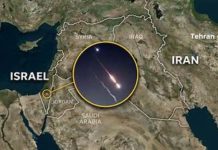JALAL-UD-DIN
Democracy is the system of governance in which most of the power lies in the hands of the people. It allows citizens to elect their leaders. Democracy is based on the principles such as free and fair election, the rule of law, protection of fundamental rights etc. The ancient Athens firstly adopted the democratic system which they called as direct democracy in 5th century.
Pakistan was established in 1947 on democratic ideals, despite this Pakistan had a complex and turbulent relationship with democracy. The country has faced many political problems, military take over and weak institution but still, the journey towards a stable democratic system is still continue.Pakistan emerged as an independent state in 1947 in the world map. The founder of Pakistan Quaid-e-Azam envisioned a democratic and inclusive society. He also believed in constitutionalism, civil liberties, and the rule of law. However, despite that, Pakistan has struggled to maintain a stable and mature democratic system.
Pakistan had not any proper constitution to run the whole country, so the 1935 Act is used as a constitution after few amendments in it. Later, in 1956, the first Pakistan’s constitution is formed in the era of Governor-General Iskander Mirza and it was adopted as first constitution. It was a very short interval of time that democracy is being stabilized but after the two years of stabilizing period of democracy, the martial law was imposed by Ayub Khan in 1958. It was the first time that martial was imposed in Pakistan. By the perspective of historians, they said that the reason behind the imposition of martial law is the leadership vacuum and political instability in Pakistan.
Ayesha Jalal is a very famous historian because of her two famous books “The Struggle for Pakistan” and “The Sole Spokesman.” In her research, she emphasized that democracy in Pakistan is fragile but resilient. The main cause of democratic instability in Pakistan is due to the alternate switching of political parties and multiple imposition of martial law by the military coup. The other minor causes of democratic instability are the weaker civilian institutions. It means that political parties often lack internal democracy and vision which makes the country democratically unstable. Even also the judiciary and media manipulate the people. In addition, the lack of political awareness among the different parties’ leaders and members causes the instability in democracy of Pakistan.
By the perspective of different historians like Ayesha Jalal, Stephen Cohen, Iftikhar Malik, etc., they said that the real evolving time of democracy is after the general election of 1988 because after the general election the military coup hand over the authorities to civilian government. In that time, Benazir Bhutto became the first female prime minister of Pakistan, but in this way a very suspicious question revolve in our mind that if democracy is completely restored then why Pakistan’s democracy system is not stable?The answer of this question according to the mentioned historian is that the military did not hand over all the authorities to the civilian government. They involved in foreign policies, in elections,media etc.
Democracy in Pakistan is fragile but not completely failed. Our country learn from their history that how we improve our democracy system. It has survived numerous challenges and continues to evolve. However, to flourish the democracy, we must work collectively by all the stakeholders including politicians, intelligentsia, civil society, and the public. We know that only a strong and functional democracy can ensure justice, equality, stability, and development for Pakistan in the years to come.
Pakistan Zindaba!
JALAL-UD-DIN
Student of Language and cultural studies at University of Baltistan

















